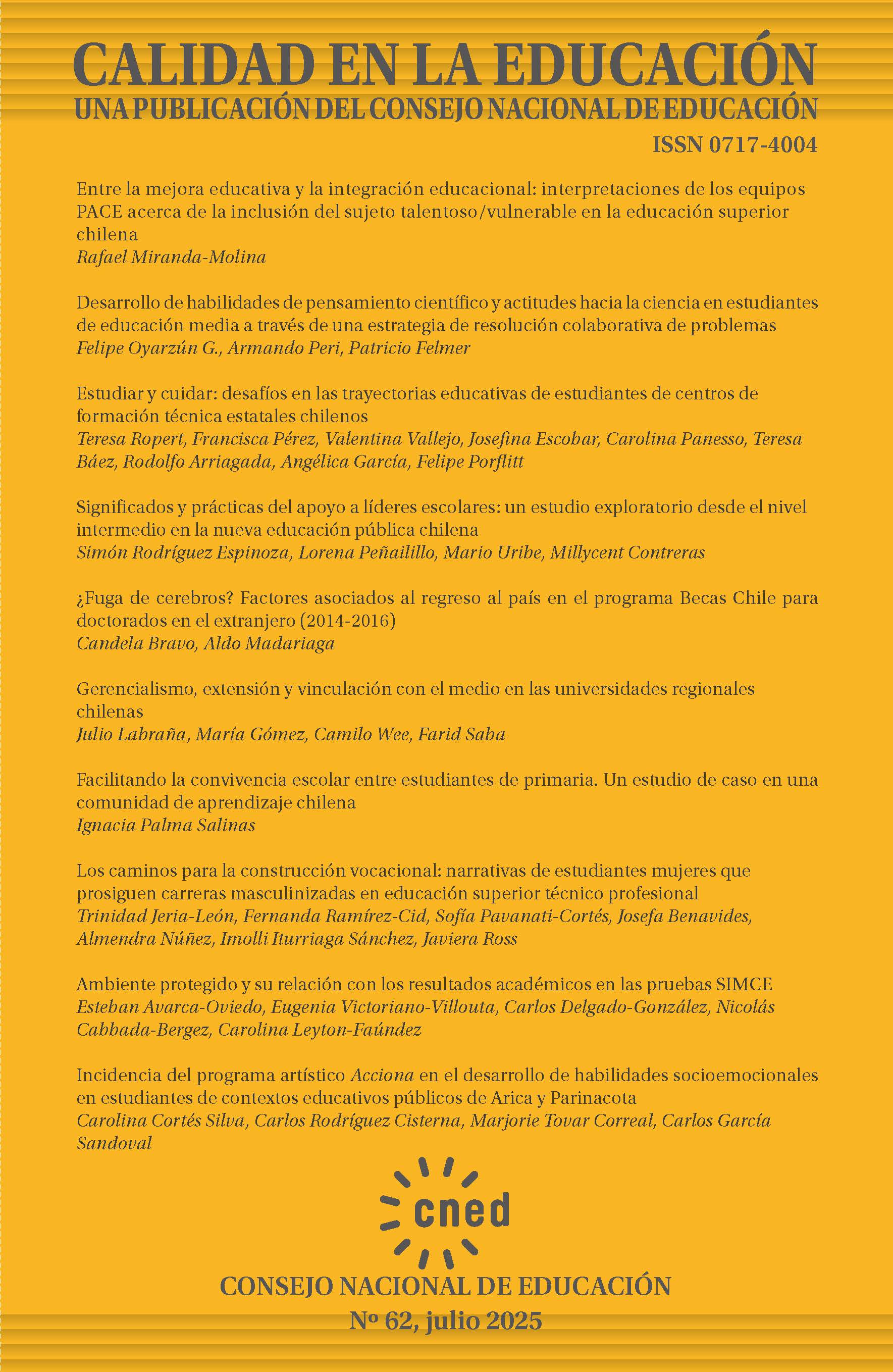Meanings and Practices of Support for School Leaders: An Exploratory Study from the Middle-Tier in Chile's New Public Education System
DOI:
https://doi.org/10.31619/caledu.n62.1585Keywords:
Intermediate Level, Middle-Tier, Professional Support, School Improvement, School LeadershipAbstract
Supporting school leaders has become a responsibility of middle-tier actors committed to promoting educational quality and equity for all students. However, knowledge of this topic remains limited. This article presents an exploratory study with a qualitative interpretative approach, aimed at identifying the meanings and practices associated with the technical support provided by middle-tier professionals and school leadership teams in the Local Public Education Services (SLEP), a new local authority established as part of an ongoing, far-reaching reform in Chile. The findings show that the support provided by the SLEP is constructed in ways that differ from other forms of assistance within the Chilean school system. It is characterized by meanings and practices that foster sustained interaction, comprehensive support, and system alignment. The article discusses the approach to support, considering its normative nature and integration with the local authority, as well as the professionalization of technical support work with school leaders.
Downloads
Published
Issue
Section
License

This work is licensed under a Creative Commons Attribution 4.0 International License.
Authors retain their Copyright and only transfer a part of these to the journal, accepting the following conditions:
Authors keep their rights as authors and guarantee the right to the journal for the first publication of their work, which is simultaneously subject to the Creative Commons Attribution license allowing third parties to share the study accrediting the author and first publication in this journal.
Authors may adopt other non-exclusive license agreements for distribution of the version of the published work (e.g. inclusion in an institutional thematic file or publication in a monographic volume) accrediting initial publication in this journal.
Authors are allowed and recommended to share their work over the Internet (e.g. in institutional telematic files or their website) before and during the submission process, which may lead to interesting exchanges and increased citation of the published work. (See The effect of open access).

